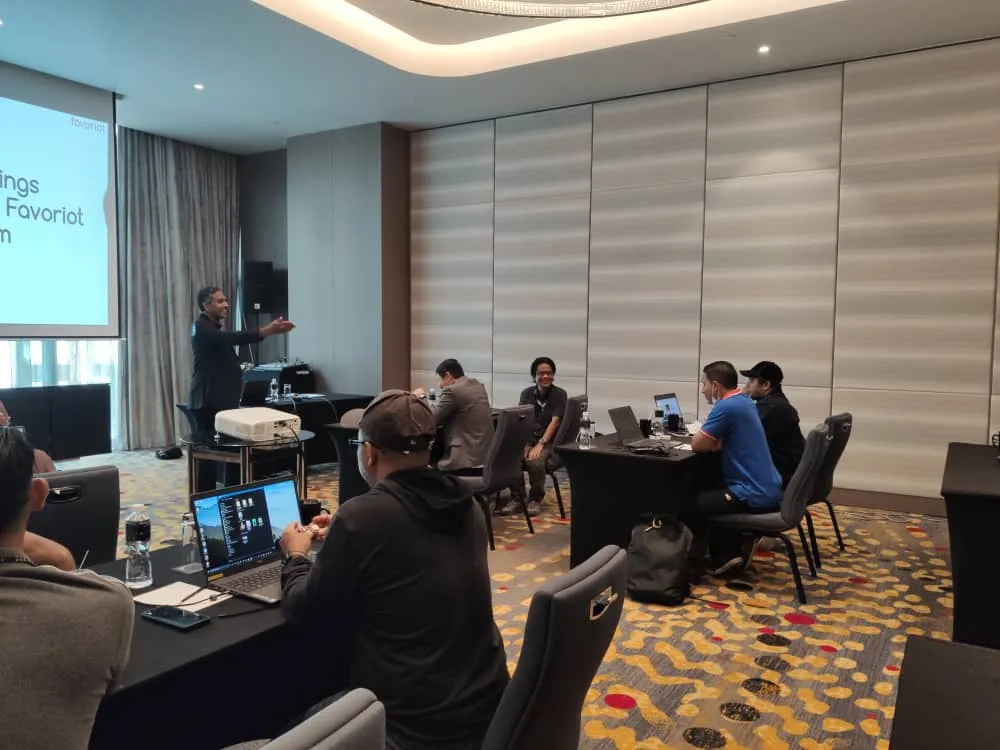Are we ready to propel forward in IoT?
What do we need to achieve this?
The Internet of Things (IoT) is not just a technological revolution; it’s an economic and industrial transformation reshaping how businesses operate and consumers interact with the physical world.
As IoT continues gaining traction, the need for skilled engineers and technical professionals with a deep understanding of IoT technologies and a firm grasp of business theory becomes increasingly critical.
This article examines why the industry needs more such professionals, particularly emphasizing Malaysia’s ambition to become a nation that not only consumes but also produces locally made IoT products.
Bridging the Gap between Demand and Supply
The IoT market is burgeoning.
By interconnecting devices and systems, IoT offers efficiencies, insights, and control that were unimaginable just a decade ago.
However, the supply of skilled professionals who can navigate the complexities of IoT needs to catch up with demand.
Addressing this talent gap is essential for countries like Malaysia that aspire to be at the forefront of this revolution.
Producing homegrown IoT solutions requires a workforce that understands not only the technical aspects of IoT but also the business implications and opportunities it presents.
The Five Crucial Technology Layers of IoT
- Hardware and Sensors: IoT begins with the hardware—the sensors and devices that collect data. Engineers must understand the myriad of sensors available and their applications in various industries. This requires knowledge of electronics and embedded systems and integrating hardware into physical environments.
- Connectivity: IoT devices must communicate, meaning professionals must be versed in networking. They need to know the best connectivity options—whether Wi-Fi, Bluetooth, LTE, or emerging technologies like 5G—and understand their implications for bandwidth, latency, and power consumption.
- Middleware or IoT Platforms: This is where data is aggregated and managed. A robust understanding of choosing and utilizing an IoT platform — be it cloud-based or on-premises — is crucial. This includes making decisions based on scalability, reliability, and cost.
- Applications: The value of IoT is realized through applications that turn raw data into insights and actions. Engineers must be skilled in software development and user interface design and have experience developing applications that meet customer needs.
- AI and Security: As IoT systems generate massive amounts of data, using AI for analysis and machine learning becomes critical. Securing IoT systems against cyber threats is also non-negotiable. Professionals must be well-versed in cybersecurity strategies specific to IoT.
The Business Acumen in IoT
Understanding IoT technology is only half the battle.
The other half is grasping the ‘why’ behind IoT.
What problems does IoT solve? How can it drive business value?
Technical professionals must understand the business or industry they’re developing solutions for.
This includes market analysis, business case development, and articulating the return on investment for IoT initiatives.
Professionals should also be adept at designing and architecting IoT solutions that align with business goals.
They must understand how to leverage IoT data for strategic decisions, which requires a thorough understanding of data analytics, big data technologies, and how IoT can provide a competitive edge.
IoT in the Malaysian Context
For Malaysia to transition from a consumer to a producer nation in IoT, there must be an emphasis on education and training that equips future generations with the right skill sets.
Malaysian industries require professionals who can develop local IoT products that cater to the region’s unique needs, understand the local market, and navigate the intricacies of domestic and international business landscapes.
Training and Development
Recognizing this need, companies like Favoriot are stepping up to offer comprehensive IoT training programs.
These programs are tiered to cater to varying levels of expertise — from business professionals who need a foundational understanding of IoT to engineers seeking advanced training in AI and IoT security.
Such training modules are vital for industry engineers, business professionals, and academics who will eventually be responsible for disseminating IoT knowledge.
Conclusion
The demand for engineers and technical professionals with a comprehensive understanding of IoT and its technology layers, coupled with solid business theory, is not just a sector-specific necessity; it’s a national imperative for countries like Malaysia.
Investing in specialized IoT training, fostering a culture of continuous learning, and encouraging innovation is crucial to achieving the vision of becoming a producer nation.
By doing so, Malaysia can ensure that its future generation of talented professionals is capable of entering the industry and pioneering it, thereby securing a place for the nation at the forefront of the IoT revolution.
Favoriot offers four (4) IoT Training Courses, from business to AI. Contact us for the latest information about Favoriot IoT training.
Favoriot Testimonial Videos. Listen to what they have to say about the IoT Trainings.
This article, “Where are the IoT Talents in Malaysia?,” is originally published in Medium.
